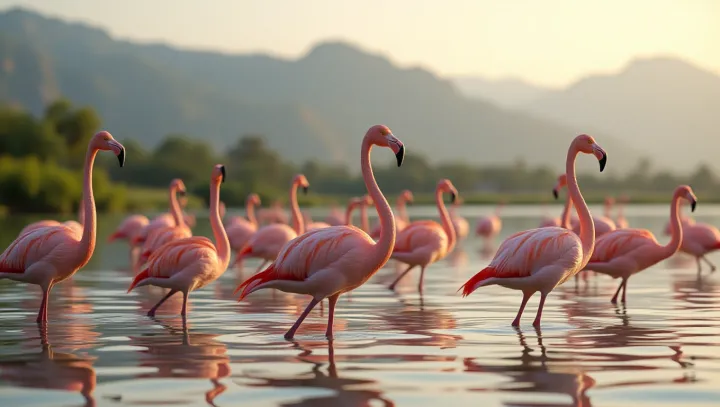The Flamingo Phenomenon: Nature's Cold Marvel

In the tranquil wetlands of Africa, a spectacle unfolds as flamingos spread their resplendent pink wings, captivating both avian enthusiasts and scientists alike. Their presence in these ecosystems is not merely ornamental but holds significant ecological importance, acting as bio-indicators of wetland health. According to Dr.
Linda Green, a noted biologist specializing in ornithology, flamingos exhibit unparalleled adaptability to extreme environments, thriving in saline lakes usually inhospitable to most species. 'Their ability to filter food from the muddy waters through special adaptations underlines their evolutionary prowess,' she explains. As climate change accelerates, the survival of flamingos faces new challenges.
Many traditional habitats shrink under the weight of human encroachment and environmental shifts. This has led to an urgent call for comprehensive conservation efforts to safeguard these emblematic yet vulnerable birds. Global attention now pivots towards sustainability and conservation strategies.
By preserving flamingo habitats, we not only protect these beautiful birds but also ensure the integrity of ecosystems they symbolize, urging a broader commitment to ecological resilience worldwide.
